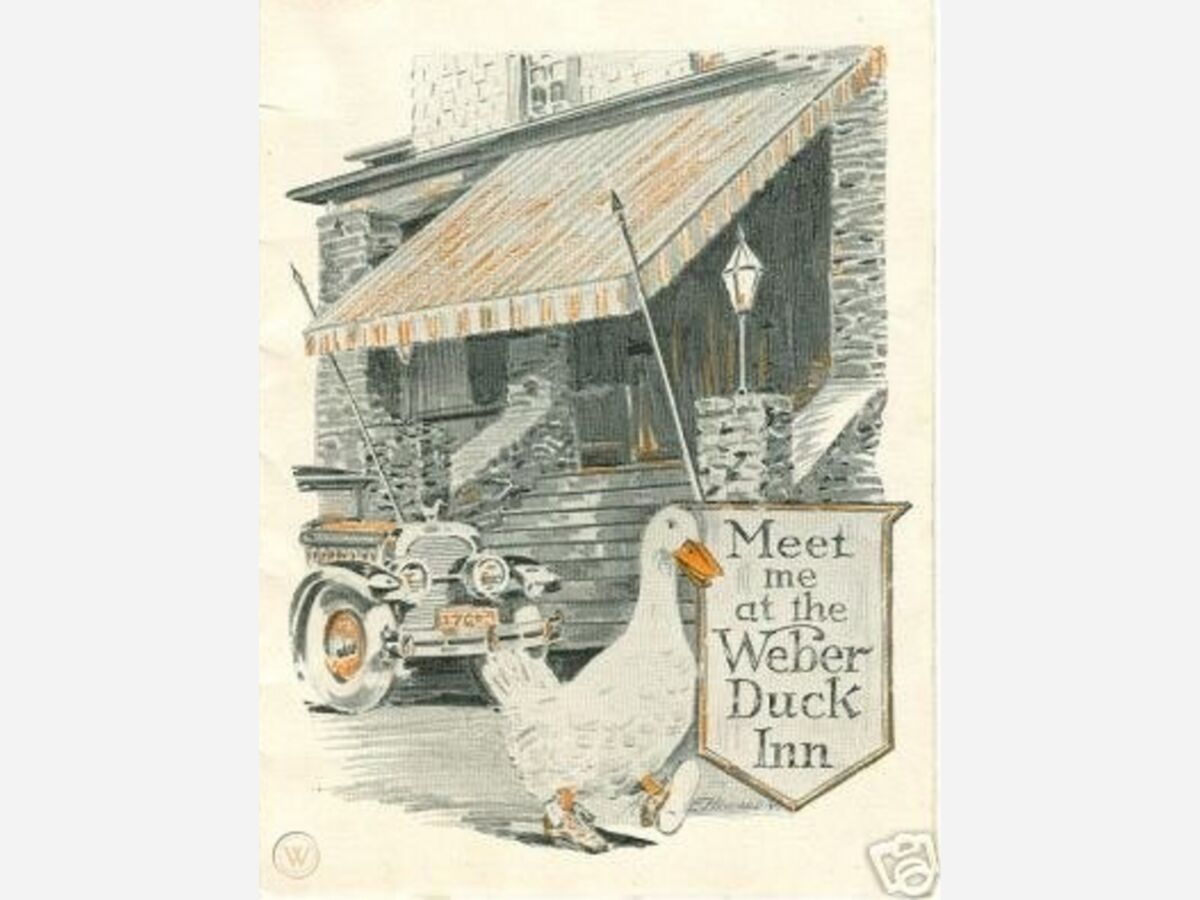Image


Particularly after World War I, as highway improvements began around the county and as cars from inexpensive “Flivvers” to Cadillacs and even American-made Rolls Royce vehicles flooded the roads, a new generation of entrepreneurs was ready to meet them.
The story of the Weber Duck Inn, (rarely pronounced correctly, as “Weeber” Duck Inn), according to a Norfolk Historical Commission presentation dating back several years, began with the immigration of an Austrian of that surname to Boston. Later, when he saved enough money, he began to buy land to farm along the Norfolk-Wrentham line and eventually specialized in American Pekin ducks, a variety descended from domestic ducks found in China.
Over time, he became one of the largest suppliers of ducks in the United State, second only to an operation on Long Island.
Perhaps it was because the old road from Wrentham to Dedham was about to be improved upgraded to State Route 1 (today 1A) but in any case. Mr. Weber spied an opportunity and began to speculate about the possibility of opening some kind of roadhouse eatery adjacent to his farm.
He ended up sharing the idea with Leon Pini at the Brunswick Inn in Boston, then one of the most highly regarded chefs in the city. Pini seemed interested, according to the talk delivered by his grandson, and agreed to come look at the property.
What he saw that caught his attention is hard to say, but Pini convinced Weber that what was needed was to put a Boston-type “hotel” dining room, as it were, in the middle of nowhere in Wrentham. Build it and they will come, he seemed to suggest.
Weber did, hiring a well-known architect to build an elegant tudor structure. Pini also got a home for his family in the bargain, and proceeded to build and train a cook staff and wait staff while Weber took care of the 85,000 ducks on the property!
The grand opening was set for a day in 1923 when the state road was supposed to be completed, but it wasn’t. Instead, tourists making the 90-minute trek from Boston had get a pass from the construction company to even drive on the half-finished surface.
Nevertheless, the guests that made it, and the Boston newspapers that covered the opening, were suitably impressed and almost overnight, everyone in the region seemed to know were Wrentham was, or at least where the Weber Duck Inn was.
Its customers including many of the stars of the silent film era such as Charlie Chaplin, Gloria Swanson, Douglas Fairbanks Jr., Mary Pickford, and director Cecil B. DeMille. And, prohibition or not, rumor had it you could still get a drink at the Weber, if you knew who and how to ask.
Given the vagaries of roads and the persnickety habits of cars in winter (many New Englanders put their cars in storage from December to April), the Inn also limited its operations to three seasons. Pini, for his part, had a winter job as a chef in Florida!
Even with the onset of the Depression, the Weber Duck Inn, catering to people with higher incomes, continued to do good business, but its heyday was past. In 1934, Pini moved his talents to the Lafayette House. Other roads, new generations with different tastes, and perhaps even a different attitude toward duck as a dinner food, changed things.
The building later became a nursing home. But a generation of Franklinites could be found on the staff of the Weber Duck Inn and often counted it as a special time in their lives.